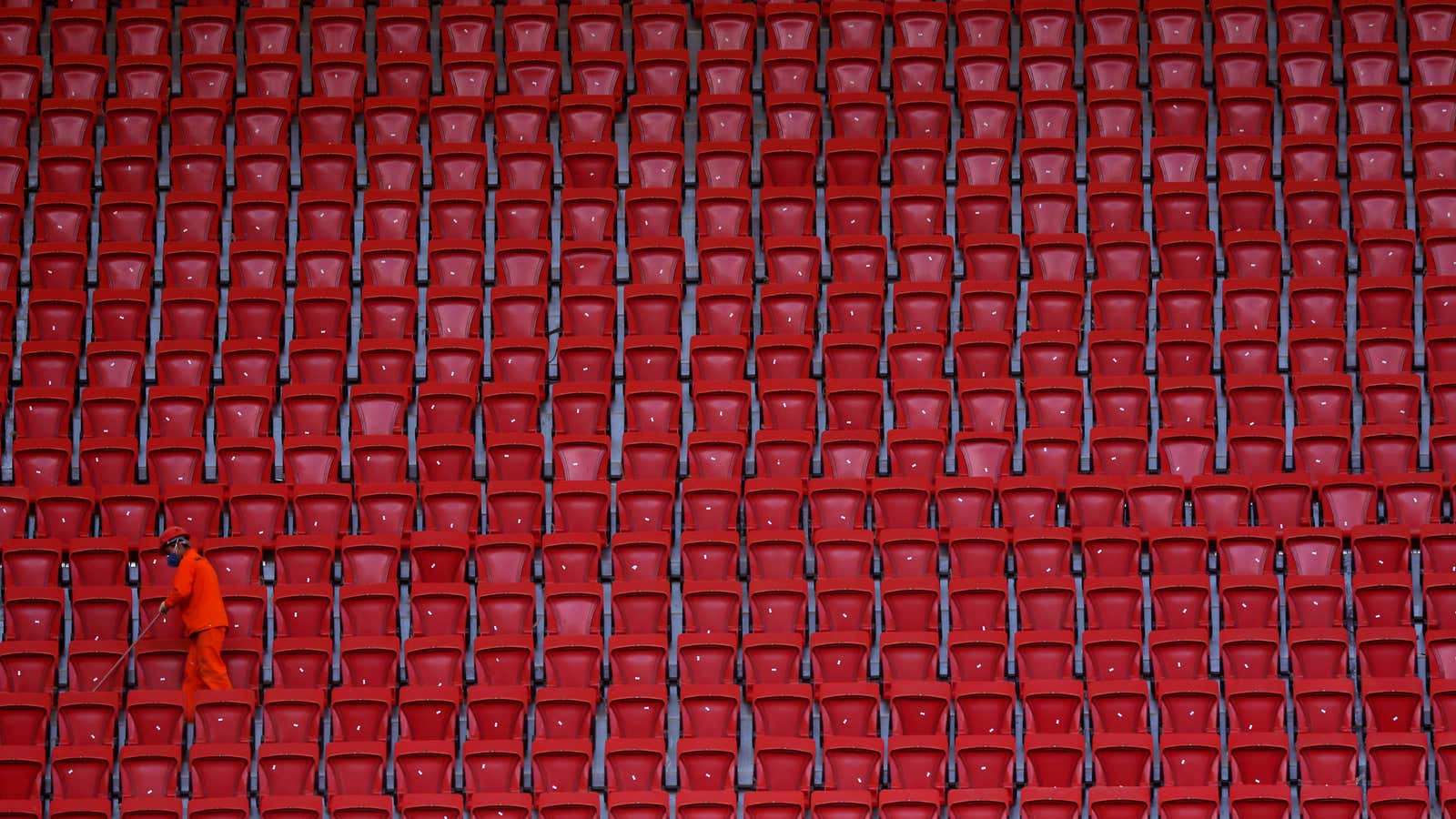Next year’s World Cup goers may be fretting about the cost of hotel rooms in Sao Paulo, which are already running up to five times normal prices during the event. But the cost of getting around the country should worry them just as much.
Brazil just denied foreign carriers the right to supply local flights during the World Cup. Doing so would have meant not only publicly admitting that the country wasn’t capable of handling the surge in domestic travel, but also forfeiting a good deal of revenue inherent in that surge. But the fact that Brazilian airlines will alone be providing city-to-city flights during the World Cup could prove problematic for soccer fans who will likely need to change travel plans at the last minute, depending on whether the teams they support move on to the next round.
“Flight changes are almost inevitable during the World Cup. You want to follow a team, but you don’t know how far they are going to get,” flight industry analyst Robert Mann told Quartz. “That’s what creates the problem.”
Airlines have to contend with two forces in large-scale sporting events like the World Cup and the Olympics: the overall surge in travelers (three million tickets will be sold for the 2014 World Cup, which means at least that many extra travelers and probably considerably more), and then less predictable mini-surges throughout the tournament. This makes for high costs. Airlines already struggling to turn a profit, like discount airline Gol, will be forced to fly extra planes, charter new routes, and pay workers for longer hours and overtime.
Raising prices in response to the spikes in demand is a reasonable step. But a number of Brazilian and Latin American airlines are already being criticized for price gouging ahead of the games—some domestic flights, for example, are already running as much as 10 times what they normally cost. The 2010 World Cup in South Africa was similar: Tourism officials were forced to issue warnings to airlines, as well as hotels and restaurants, about price gouging, and there was even an investigation into possible collusion amongst airlines.
The government will likely step in to help local carriers meet demand by way of subsidies, since ensuring that things run smoothly will be a matter of national pride, Mann says. But whatever the government does, when the tournament takes unexpected turns and demand spikes for last-minute seats on flights, some fans will find themselves facing astronomical bills. So if you’re heading for Brazil, be prepared for the worst.
